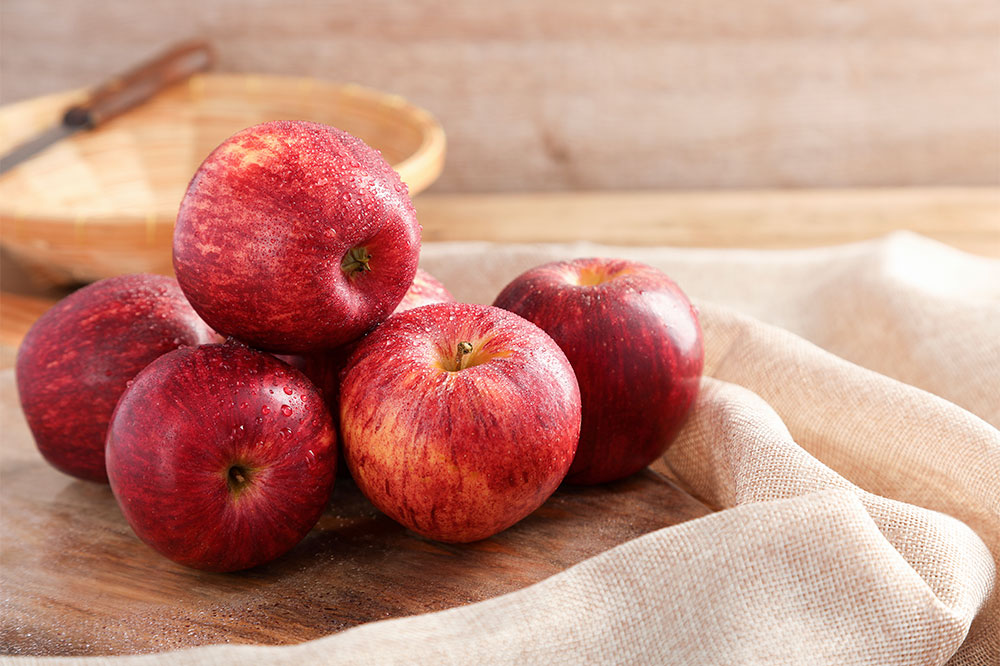3 fruit intake tips for people with diabetes

Fruits are an important source of nutrients that humans need. Having these natural desserts is a delicious way of satisfying sudden bouts of hunger, which is a common symptom that people with diabetes experience. However, fruits may contain carbs and sugar. So, can diabetes patients have them to satisfy their sweet cravings and nutritional needs? While they can add certain fruits to their nutritional regimen, here are some tips that people with diabetes should follow:
Choose the right fruits
Adding fruits to one’s meals when affected by diabetes requires caution, as one has to avoid foods that can negatively affect their blood sugar levels. Nevertheless, one must try to opt for fresh fruits. Alternatively, people can choose frozen fruits or those packed in their juice. However, processed fruits in cans and jars should be avoided as they can come with added sugars, which can raise the glucose levels in diabetes patients. One should check the food labels to avoid buying food products with added sugar. Sugar can be added to a product in different forms, including cane sugar, corn sweetener, invert sugar, high fructose corn syrup, and dextran. Here are some of the safest and healthiest fruit choices for people with the condition:
- Apple
- Avocado
- Apricot
- Blackberry
- Blueberry
- Cherry
- Grapefruit
- Grape
- Orange
- Peach
- Pear
- Plum
- Strawberry
- Kiwi
Research suggests that adding whole fruits like apples, blueberries, and grapes to one’s regimen is associated with lower risks of developing type 2 diabetes.
Check the portion size
Most studies recommend at least five servings of vegetables and fruits per day for adults and children. However, people with diabetes should check the carb content of the concerned fruit to determine its serving size. Each serving of fruit contains about 15 grams of carbs. However, this number can vary depending on the type of fruit. Here are fruit servings that contain 15 grams of carbs:
- A small piece of fresh fruit (about 4 ounces)
- Half cup of canned or frozen fruit without added sugar
- 2 teaspoons worth of dried fruit, i.e., dried cherries or raisins
Here are the serving sizes (each contains 15g of carbs) for specific fruits:
- Half a medium-sized apple
- 1 small banana
- 1 cup blackberries
- 1 cup cubed cantaloupe or honeydew melon
- 17 small grapes
- ¾ cup of blueberries
- ¼ cup of whole strawberries
- 1 cup raspberries
- ⅓ to ½ cup of fruit juice
Fresh fruits are always preferable over fruit juices for diabetic patients. According to a study conducted in 2013, fruit juices have greater chances of increasing one’s glycemic level than whole fruits. Furthermore, fresh fruits are rich in fibers that help delay the digestion process. This makes one feel full for a longer period and does not raise the blood sugar level as quickly compared with fruit juices.
Avoid fruits with excessive sugar and carbs
Certain fruits can lead to an extreme spike the blood sugar levels. Two kinds of fruits must be avoided by diabetes patients:
Fruits with excessive sugar: Even though fruits with a high Glycemic Index do not cause much harm, their intake should be limited to keep the blood glucose levels in check. These are:
Dried dates
Very ripe bananas
Watermelons
Pineapples
Mangoes
Grapes
Fruit juice
Fruits with high carb content: Most diabetes patients tend to have a low-carb regimen to ensure that their blood sugar levels are not affected by a high intake of carbohydrates. However, even though certain fruits may have high carb content, this number may not be as high as that of nutrient-deficient foods. For instance, a large banana may contain 30 grams of carbs, however, it is far better than a chocolate muffin, which is not only nutrition-deficient but also has a carbohydrate content of 55 grams. So, one should try avoiding other high-carb foods before limiting their fruit intake.
Treatment options for diabetes
Apart from following a healthy meal plan, diabetes should be managed using treatment options. Depending on the patient’s physiological needs, the doctor may prescribe the following options for people affected by diabetes:
Insulin therapy: This aims to provide a synthetic version of the protein hormones (i.e., insulin) produced by the pancreas. Insulin therapy is conducted by injecting the hormones under the skin but, in some cases, it may be injected into the muscles or veins.
Invokana: Known by the generic name canagliflozin, Invokana is an oral treatment option specifically prescribed for people with type 2 diabetes. It works by preventing sodium-glucose co-transporter found in kidney tubules from re-absorbing glucose from urine.
Glucotrust: This is a food supplement that monitors blood glucose in diabetes patients by reducing their craving for sweet-tasting foods. Glucotrust also helps in administering a good night’s sleep.
Kerendia: It is an FDA-approved treatment option for adult patients with type 2 diabetes-induced chronic kidney disease. Kerendia can help slow down the decline of kidney function.
Dexcom: This is a diabetes management tool that senses and transmits data regarding the patient’s blood glucose levels every five minutes. Dexcom can transmit data to a corresponding smartphone app to help patients monitor their levels.
Diabetes is best managed with treatment and a balanced meal plan that includes fruits. Following a low-carb diet can help with disease management, but people should not deprive themselves of essential nutrients. It is crucial to come up with a proper meal plan with the right amount of fruits, i.e., limited to 15 grams of carbs per serving.

